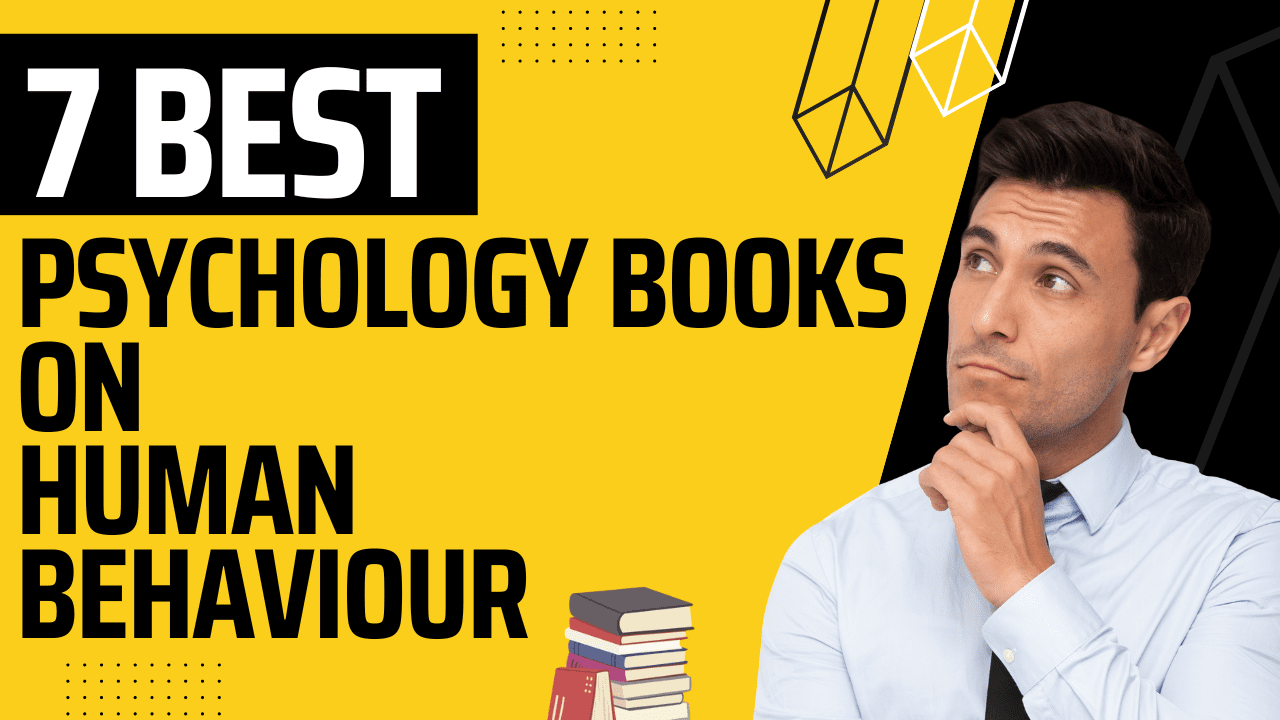Coursera Plus - Get Unlimited Access to 7,000+ Online Courses
Coursera Plus - Get Unlimited Access to 7,000+ Online Courses
Coursera Plus - Get Unlimited Access to 7,000+ Online Courses
7 Best Psychology Books on Human Behaviour
Team answersQ
- Updated on
- Psychology
Disclaimer: This post is NOT sponsored. Some product links are affiliate links which means if you buy through those links, you won’t pay anything extra and we’ll also receive a small commission on a purchase.

Scientists have done tremendous research in the field of medical science during the last fifty years, helping us understand the complex inner workings of our bodies.
The mind, on the other hand, is still a mystery. While scientists continue to seek definite answers to questions such as why we dream, what is awareness, and how intelligence can be defined, several fascinating books about the human mind have been published, revealing many of its previously unknown secrets.
To assist you in your search for answers, we’ve compiled a selection of 7 excellent psychological books that can help you better understand this marvel of evolution.
7 Best Psychology Books on Human Behavior
The intelligence quotient, commonly known as IQ, is a number that measures a person’s thinking abilities and problem-solving skills, and it is frequently used as a measure of intellect. However, Emotional Intelligence, often known as EQ, is a crucial part of intelligence that is often overlooked. EQ refers to a person’s ability to recognize and positively control their own emotions to reduce stress, communicate effectively, empathize with others, and resolve problems.
In this book, novelist and science journalist Daniel Goleman contends that emotional literacy is as important as or more important than IQ in leading a happy and healthy life.
Malcolm Gladwell’s book Blink takes a counter-intuitive approach to decision-making. Gladwell explains how our brains make split-second decisions without even realizing it.
This is an eye-opening book for anyone who wants to enhance their decision-making and gain a better understanding of how we make decisions; it will change the way you think about thinking.
Daniel Kahneman, an Israeli-American psychologist, published this book in 2011. It analyses two systems that influence how we think and act. One is quick, intuitive, and emotional, while the other is slower, more deliberate, and logical. This book compares and contrasts the advantages and disadvantages of each, teaching us when to trust our instincts and when to rely on slower, more logical decision-making.
This is a book that gives a ground-breaking exploration of the mind that will help you comprehend your thought process, your flaws and biases, and the mind’s incredible capabilities.
This is an eye-opening book that explains basic social interactions and reveals that a lot of the behavior we observe every day can be best explained as various types of games. Berne takes us on a fascinating tour into the thoughts of ordinary people, showing us how to read complex human interactions and how a life free of games might allow for more genuine bonds to form.
This book, first published in 1964, went on to become a bestseller, selling more than five million copies and continuing to be a fascinating study of how the mind works to this day.
Daniel H. Pink claims in this intriguing book that most people are not motivated solely by monetary incentives. Pink illustrates how intrinsic reasons and purpose are drivers of true motivation that may help us perform better.
The book also includes surprisingly simple tactics and practical suggestions on how to put this new understanding to work in our daily lives to encourage ourselves. Even though this book is primarily aimed at the business community, it has something to teach us all.
In a world where socializing, teamwork, connection, and collaboration are valued, here is a book that celebrates and embraces introverts. Introverts are persons who prefer to listen rather than speak, who appreciate isolation, who discover and develop while being alone, and who prefer to work alone rather than in groups.
Susan Cain argues strongly in Quiet that our society owes a debt of gratitude to innovative creators such as Einstein, Darwin, and Abraham Lincoln for their accomplishments, and that we as a community should never undervalue introverts. This book focuses on the characteristics introverts bring to the table and reshapes our perceptions about introverts, as well as their perceptions of themselves.
In this newly revised and extended edition of the ground-breaking New York Times bestseller, Dan Ariely refutes the widespread assumption that we behave in fundamentally reasonable ways We constantly overpay, underestimate, and postpone almost everything we do, from drinking coffee to losing weight, from buying a car to choosing a romantic partner. These misguided actions, on the other hand, are neither random nor meaningless. They’re based on methodologies and predictions, causing us to behave irrationally.
Even if you only read half of the finest psychology books on human behaviour, you’ll know more about it than 90% of the population.
After reading the books, you’ll immediately realise that the greatest way to apply these concepts is to be there.


